News archive
On this page you can search for older news. Choose a topic, type of news or enter your own keyword to filter out news.
View compact
Breast cancer is the most common cancer among women and the likelihood of surviving the disease is higher if the cancer is detected early and the tumour is relatively small and not very aggressive.
News
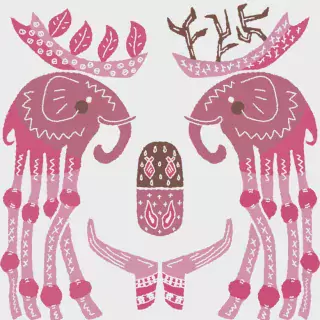
Breast cancer is the most common cancer affecting women and many women are being treated to prevent the cancer from returning, for example with adjuvant hormone therapy. This therapy is prescribed as a once-a-day pill for estrogen receptor-positive breast cancer patients (around 80% of all cases) for a duration of at least five years.
News
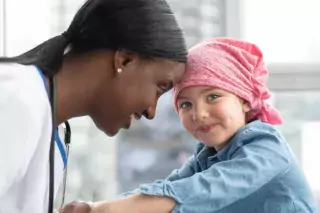
Close on 500 colleagues in the cancer field from Karolinska University Hospital and Karolinska Institutet gathered in Aula Medica during this year’s Karolinska CCC conference on 30–31 March. Also attending were Sahlgrenska CCC and Skåne CCC.
News
In a nationwide Swedish study of 207 births to women with an earlier diagnosis of colorectal cancer (CRC), researchers found an increased risk of both maternal and neonatal adverse outcomes. The study was published in eClinicalMedicine and is a collaboration between Washington University in St Louis and Karolinska Institutet.
News
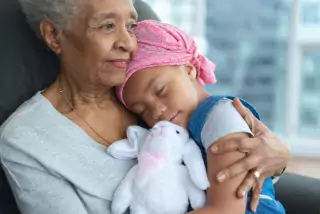
Thirteen researchers at Karolinska Institutet have been awarded 54.9 million Swedish kronor from the Swedish Cancer Society. The foundation is distributing a total of SEK 124.3 million to 31 cancer researchers in Sweden.
News
Researchers at the Department of Oncology-Pathology have together with researchers from The European Molecular Biology Laboratory published a paper in Nature Chemical Biology where they developed a method that can identify important differences between proteins in an unbiased way.
News
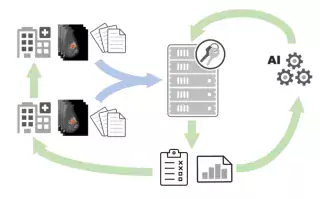
While there are currently a dozen approved AI systems for breast cancer screening, it has been difficult to evaluate their clinical performance objectively. Now, however, there is a Swedish validation platform ready to compare how well AI systems detect signs of breast cancer – and its development has been led by researchers at Karolinska Institutet.
News
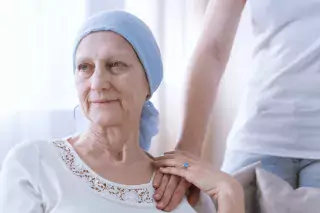
Immunotherapy is an effective form of therapy for different types of cancer. However, for pancreatic cancer, its effect is limited and differs between men and women. Researchers at Karolinska Institutet have now found a possible explanation for this sex difference. The study, which is published in Cancer Research, reveals the presence of an immune cell in women with pancreatic cancer that obstructs the body’s immune response. The results can pave the way for a more sex-specific treatment.
News
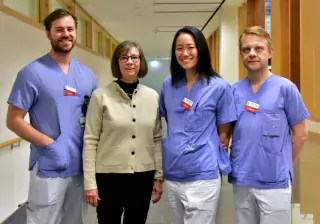
Immunotherapy has been shown to greatly improve survival rates for certain types of cancer. However, in some cases, it can lead to an over-activation of the immune system, which can be dangerous. In a recent review by researchers at Karolinska Institutet, potential therapies have been identified, which might make it possible to continue with immunotherapy even when facing severe side effects.
News

CAR T-cell therapy, a certain kind of cancer treatment in which the immune system’s T cells are programmed to attack tumour cells, is effective in mice with ovarian cancer, according to a study published in The Journal for ImmunoTherapy of Cancer. The researchers, who work at Karolinska Institutet, hope that the discovery will pave the way for a clinical trial to see how effective the treatment is for women with the disease.
News
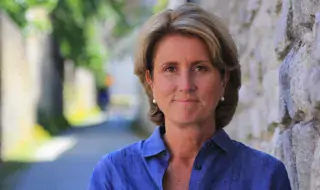
The Swedish presidency of the EU began in the new year and so much is evident, especially when it comes to issues of healthcare. Anna Martling, chief physician and professor of surgery at Karolinska Institutet, will be leading the EU Cancer Congress, which kicks off in Stockholm on 1 February.
News
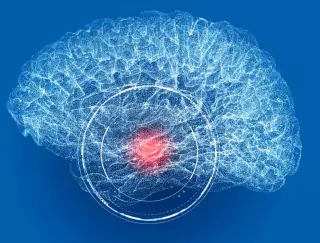
Proteins do not have a single shape, but are more like dynamic robots. But – how do they actually move? And what does this tell us about their function? Laura Orellana describes the movement of proteins using computer simulations – and has discovered a new drug target for glioblastoma brain tumours.
News
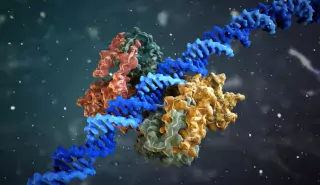
Proteins can make any inventor green with envy. It is proteins that make the body work. But when these same super-substances make mistakes, we may get sick with things like cancer or Alzheimer's disease. The job of researchers is to sort out the proteins when they malfunction.
News
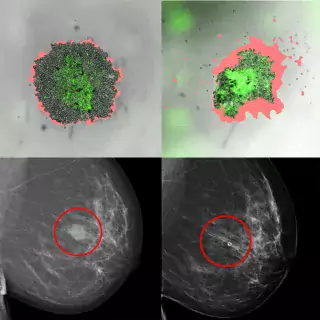
Researchers at Karolinska Institutet have developed a method that should be able to predict whether a patient with breast cancer will benefit from a particular treatment or not. The cell-based method has been tested on patients with promising results, according to a study published in PNAS.
News
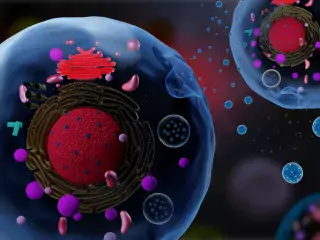
Nano-sized membrane bubbles known as extracellular vesicles activate the immune system in mice and seem to render their tumours sensitive to a type of immunotherapy drug called a checkpoint inhibitor. This is according to a new study published in Cancer Immunology Research by researchers at Karolinska Institutet.
News

The Cancer and Allergy Fund has awarded a grant of SEK 4.2 million to 23 patient-end projects on cancer and allergies. Of these, fifteen researchers at nine departments at Karolinska Institutet are to share SEK 2.5 million.
News
In this year's announcement of project grants from Radiumhemmets Forskningsfonder, OnkPat received a total of 33 million SEK. 32 researchers were granted funding.
News
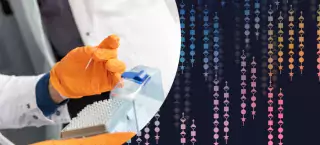
When cancer is detected at an early stage, the rates of survival increase drastically, but today only a few cancer types are screened for. An international study led by researchers at Chalmers University of Technology and affiliated with Karolinska Institutet shows that a new, previously untested method can find multiple types of newly formed cancers at the same time – including cancer types that are difficult to detect with comparable methods. The results are published in the journal PNAS.
News

Karolinska Institutet and Cancer Research UK’s innovation engine, Cancer Research Horizons, have announced a 5-year strategic partnership dedicated to accelerating the translation of academic cancer research into improved treatments for patients.
News
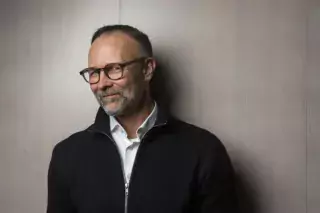
Even as a child, Martin Bergö wanted to be a scientist. And he did. His biggest discovery so far is that vitamins can worsen the prognosis for cancer patients.
News
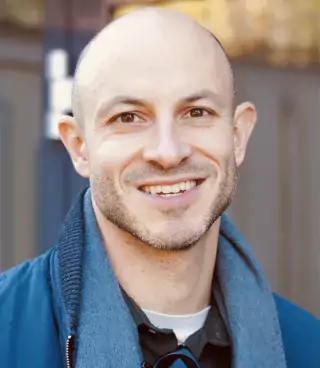
Johannes Asplund at the research group Upper GI Surgery, the Department of Molecular Medicine and Surgery, will defend his thesis "Towards an improved survival in gastric cancer" on November 25th, 2022.
Main Supervisor is Jesper Lagergren.
Main Supervisor is Jesper Lagergren.
News
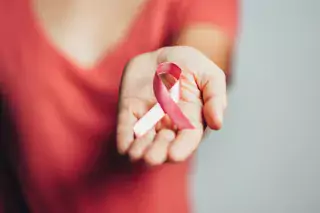
Congratulations to all the researchers at the Department of Biosciences and Nutrition (BioNut) who received funding from Cancerfonden for the years 2023-2025.
News
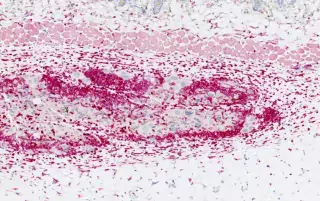
Cells that have permanently stopped multiplying, so-called senescent cells, could play an important role in the fight against cancer, according to a new study in mice by researchers at Karolinska Institutet and IRB Barcelona. The study, published in the journal Cancer Discovery, found that vaccination with senescent cancer cells significantly reduced the formation of melanoma and pancreatic cancer tumors in mice.
News

Professor Staffan Strömblad at the Department of Biosciences and Nutrition, Karolinska Institutet, has received a grant from World Wide Cancer Research for a project on: "How may mechanotransduction prevent cancer?".
News
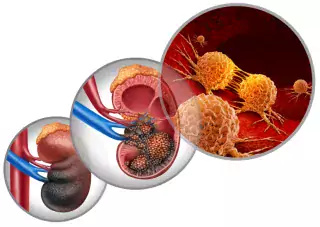
Among patients with kidney cancer, the activity of four specific genes in the cancer cells seems to be able to predict the risk of the tumour spreading and the patient’s chances of survival. This is shown by researchers from Karolinska Institutet in a preclinical study published in Nature Communications.
News
A randomized study, known by the acronym NordICC – Northern - European Initiative on Colorectal Cancer - shows colonoscopy screening reduces the risk of colorectal cancer by 18 percent. The reduction is much smaller than experts previously assumed. The NordICC study is now published in the New England Journal of Medicine (NEJM).
News

Joachim Nilsson at the research group Endocrine Surgery, the Department of Molecular Medicine and Surgery, will defend his thesis "Avidity-guided radionuclide therapy for thyroid cancer" on September 30, 2022. Main Supervisor is Catharina Ihre Lundgren.
News
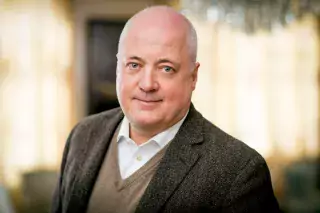
Congratulations to Professor Jan Zedenius who has been elected President of the International Association of Endocrine Surgeons, IAES. IAES is an integrated society of the International Society of Surgery ISS/SIC and the inauguration ceremony was held at the International Surgical Week in Vienna on August 16, 2022.
News

Women with a breast cancer diagnosis undergoing procedures for fertility preservation are not at increased risk of recurrence of the disease or disease-specific mortality. This has been shown in a study by Karolinska Institutet that followed the participants for five years on average. The results, published in the journal JAMA Oncology, could in the future provide safety and new hope to women who want to preserve their fertility after cancer treatment with chemotherapy.
News
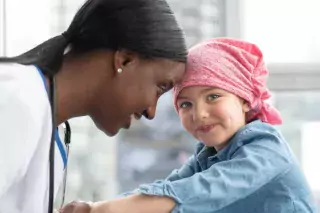
Children who suffer a relapse of the aggressive cancer known as neuroblastoma have small chances of survival. However, a group including researchers at Karolinska Institutet have now shown that DHODH blockers, which are well-tolerated in humans, can cure neuroblastoma in mice if administered in combination with chemotherapy. The study, published in the journal JCI Insight, paves the way for clinical trials of this combination therapy.
News
Svenska Läkaresällskapet (The Swedish Medical Society, SLS) has decided to award Professor Jonas F Ludvigsson at Karolinska Institutet with the society's prestigious Jubilee Award. The prize winner is awarded SEK 150,000 and the SLS century medal in silver.
News
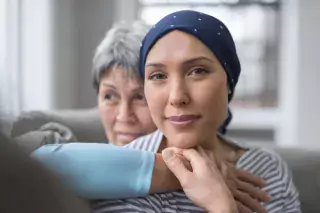
Researchers at Karolinska Institutet, among others, have studied the benefit of adding an established drug as a novel targeted therapy in the treatment of acute myeloid leukaemia (AML). The results suggest that the drug hydroxyurea can increase treatment efficacy at a relatively low cost. The results, which were published in the Journal of Internal Medicine, could have significant implications for cancer treatment, including in low-income countries.
News

Turning down the thermostat seems to make it harder for cancer cells to grow, according to a study in mice by researchers at Karolinska Institutet. The study, published in the journal Nature, found that chilly temperatures activate heat-producing brown fat that consumes the sugars the tumors need to thrive. Similar metabolic mechanisms were found in a cancer patient exposed to a lowered room temperature.
News

To investigate the long-term benefit of hormone-lowering treatment, researchers at Karolinska Institutet have done a 20-year follow-up of premenopausal women with breast cancer. The study, published in the Journal of Clinical Oncology, indicates that the treatment provides protection even after a longer period of time and that different patients seem to benefit from different hormonal treatments.
News

In a new study, researchers at Karolinska Institutet show that the activation of specific cell surface proteins – cortisol, oestrogen and vitamin A – in mice with human neuroblastoma cells results in the neuronal differentiation of cancer cells which leads to reduced mortality. The results, published in the Journal of Experimental and Clinical Cancer Research, could, in the future, lead to a more gentle and effective treatment of this severe form of cancer in children.
News
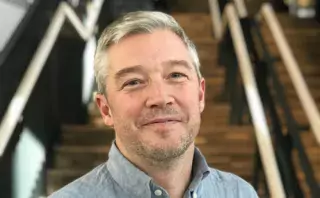
Associate Professor Tobias Nordström is awarded the European Association of Urology (EAU) "Prostate Cancer Research Award 2022" for the Stockholm3-test, a blood test that in a better way can identify men who have an increased risk for prostate cancer.
News
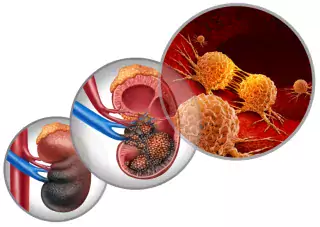
Researchers at Karolinska Institutet have linked resistance to treatment for a deadly form of kidney cancer to low mitochondrial content in the cell. When the researchers increased the mitochondrial content with an inhibitor, the cancer cells responded to the treatment. Their findings, which are published in Nature Metabolism, offer hope for more targeted cancer drugs.
News
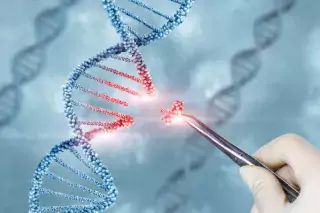
Researchers at Karolinska Institutet and SciLifeLab describe in a study published in Science how they have improved the ability of a protein to repair oxidative DNA damage and created a new protein function. Their innovative technique can lead to improved drugs for diseases involving oxidative stress, such as cancer, Alzheimer’s disease and lung diseases, but the researchers believe it has even greater potential.
News
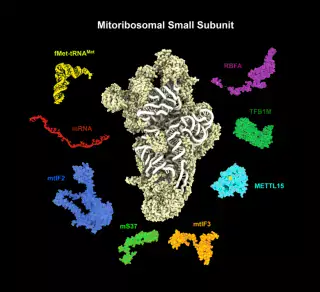
Using advanced microscopy techniques, researchers at Karolinska Institutet and Stockholm University have visualized in unprecedented detail the machinery that the cells’ powerhouses, the mitochondria, use to form their proteins. The results, which are published in Nature, raise hopes of more specific antibiotics and new cancer drugs in the future.
News

A new study, published in Science, shows how self-inflicted DNA damage uniquely enables tumor cells to endure the genotoxic effects of radiation therapy, allowing them to survive and contribute to tumor reoccurrence. The findings highlight a cancer-specific survival mechanism that could be targeted and used to enhance the tumor cells’ vulnerability to genotoxic cancer treatments.
News
A study from Karolinska Institutet and the Nordic cancer registries shows that cancer notification rates declined in the Nordic countries during the early phase of the COVID-19 pandemic in April-May 2020 compared to previous years. In the fall of 2020, the cancer rates recovered in Denmark, Norway and Iceland, yet only partly in Sweden and Finland. In the Faroe Islands, the changes in cancer rates were not statistically significant. The study was published in International Journal of Cancer.
News
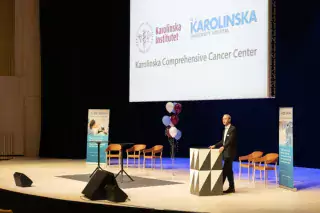
Almost 500 employees gathered in Aula Medica on 1 April when Karolinska Comprehensive Cancer Centre (Karolinska CCC) celebrated its second anniversary since accreditation by honouring its employees and the collaboration between Karolinska Institutet and Karolinska University Hospital.
News
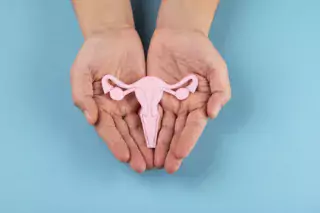
Susanne Fridsten at the research group Diagnostic Radiology, Department of Molecular Medicine and Surgery, will defend her thesis "Carcinoma of the uterine cervix: aspects on preoperative staging and assessment of treatment effect using magnetic resonance imaging" on April 21, 2022. Main Supervisor is Lennart Blomqvist.
News
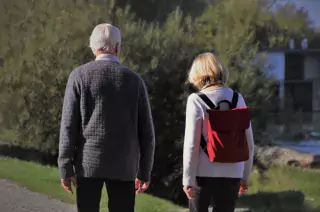
Cecilia Haddad Ringborg at the research group Surgical Care Science, Department of Molecular Medicine and Surgery, will defend her thesis "The perspective of being a family caregiver of a patient treated for oesophageal cancer : problems and needs" on April 1, 2022. Main Supervisor is Pernilla Lagergren.
News
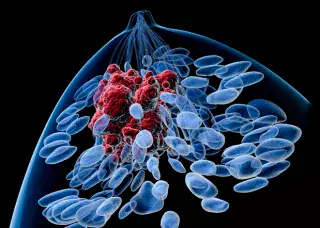
Researchers at Karolinska Institutet have identified a protein that protects against breast tumour growth and that can be linked to a better prognosis in breast cancer patients. The results, which are published in the journal Nature Communications, may contribute to the development of new therapies for difficult-to-treat forms of breast cancer.
News

The causes of complex diseases can be identified by representing them in the form of mathematically produced networks. This method was used to find bacteria that drive atopic dermatitis, for example.
News

The p53 protein protects our cells from cancer and is an interesting target for cancer treatments. The problem is, however, that it breaks down rapidly in the cell. Researchers at Karolinska Institutet have now found an unusual way of stabilising the protein and making it more potent. By adding a spider silk protein to p53, they show that it is possible to create a protein that is more stable and capable of killing cancer cells. The study is published in the journal Structure.
News
Fatigue, or severe tiredness and exhaustion, is a distressing condition for many patients with advanced cancer. Unfortunately, good pharmacological treatment options are limited, and the ones available come with a risk of side effects and/or habituation.
News
When she was 14 years old Jessica Strid was treated for cancer and was told that it would be difficult for her to get pregnant. Today she has two children. ”I am very grateful”, she says.
News
Many young people whose fertility have been impaired due to cancer treatment can today be helped to become parents. Kenny Rodriguez-Wallberg, Adjunct Professor at the Department of Oncology and Pathology at Karolinska Institutet and Senior Consultant at Karolinska University Hospital, answers six common questions.
News
